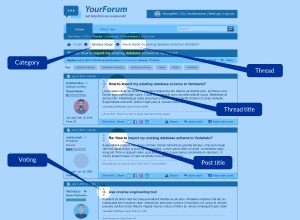Да приемем, че имате продукти и категории. Клиент казва, че е необходимо да се използват други бизнес процеси за категориите с оценка по-висока от 50. Имате солиден опит и разбирате, че утре тази стойност може да е различна – 127,37. Тъй като искате да избегнете тази ситуация, пишете кода по следния начин:
public class Category : HasIdBase<int>
{
public static readonly Expression<Func<Category, bool>> NiceRating = x => x.Rating > 50;
//...
}
var niceCategories = db.Query<Category>.Where(Category.NiceRating);
За съжаление това няма да работи, ако трябва да изберете продукти от съответните категории. NiceRating има тип Expression
По този начин трябва да преобразуваме Expression
public class Product: HasIdBase<int>
{
public virtual Category Category { get; set; }
//...
}
var niceProductsCompilationError = db.Query<Product>.Where(Category.NiceRating); За щастие е доста лесно!
// In fact, we implement a composition of statements,
// which returns the statement matching the composition of target functions
public static Expression<Func<TIn, TOut>> Compose<TIn, TInOut, TOut>(
this Expression<Func<TIn, TInOut>> input,
Expression<Func<TInOut, TOut>> inOutOut)
{
// this is the X parameter => blah-blah. For a lambda, we need null
var param = Expression.Parameter(typeof(TIn), null);
// we get an object, to which this statement is applied
var invoke = Expression.Invoke(input, param);
// and execute “get an object and apply its statement”
var res = Expression.Invoke(inOutOut, invoke);
// return a lambda of the required type
return Expression.Lambda<Func<TIn, TOut>>(res, param);
}
// add an “advanced” variant of Where
public static IQueryable<T> Where<T, TParam>(this IQueryable<T> queryable,
Expression<Func<T, TParam>> prop, Expression<Func<TParam, bool>> where)
{
return queryable.Where(prop.Compose(where));
}
// check
[Fact]
public void AdvancedWhere_Works()
{
var product = new Product(new Category() {Rating = 700}, "Some Product", 100500);
var q = new[] {product}.AsQueryable();
var values = q.Where(x => x.Category, Category.NiceRating).ToArray();
Assert.Equal(700, values[0].Category.Rating);
}
Това е реализацията на композицията на изявления в LinqKit. Въпреки това, Entity Framework не работи с InvokeExpression и хвърля NotSupportedException. Знаете ли, че LINQ има недостатъци? За да заобиколим това ограничение, в LinqKit използваме метод за разширение AsExpandable. Пийт Монтгомъри описа този проблем в своя блог. Неговата версия на Predicate Builder работи както за IEnumerable
Ето кода такъв, какъвто е.
public static class PredicateBuilder
{
/// <summary>
/// Creates a predicate that evaluates to true.
/// </summary>
public static Expression<Func<T, bool>> True<T>() { return param => true; }
/// <summary>
/// Creates a predicate that evaluates to false.
/// </summary>
public static Expression<Func<T, bool>> False<T>() { return param => false; }
/// <summary>
/// Creates a predicate expression from the specified lambda expression.
/// </summary>
public static Expression<Func<T, bool>> Create<T>(Expression<Func<T, bool>> predicate) { return predicate; }
/// <summary>
/// Combines the first predicate with the second using the logical "and".
/// </summary>
public static Expression<Func<T, bool>> And<T>(this Expression<Func<T, bool>> first, Expression<Func<T, bool>> second)
{
return first.Compose(second, Expression.AndAlso);
}
/// <summary>
/// Combines the first predicate with the second using the logical "or".
/// </summary>
public static Expression<Func<T, bool>> Or<T>(this Expression<Func<T, bool>> first, Expression<Func<T, bool>> second)
{
return first.Compose(second, Expression.OrElse);
}
/// <summary>
/// Negates the predicate.
/// </summary>
public static Expression<Func<T, bool>> Not<T>(this Expression<Func<T, bool>> expression)
{
var negated = Expression.Not(expression.Body);
return Expression.Lambda<Func<T, bool>>(negated, expression.Parameters);
}
/// <summary>
/// Combines the first expression with the second using the specified merge function.
/// </summary>
static Expression<T> Compose<T>(this Expression<T> first, Expression<T> second, Func<Expression, Expression, Expression> merge)
{
// zip parameters (map from parameters of second to parameters of first)
var map = first.Parameters
.Select((f, i) => new { f, s = second.Parameters[i] })
.ToDictionary(p => p.s, p => p.f);
// replace parameters in the second lambda expression with the parameters in the first
var secondBody = ParameterRebinder.ReplaceParameters(map, second.Body);
// create a merged lambda expression with parameters from the first expression
return Expression.Lambda<T>(merge(first.Body, secondBody), first.Parameters);
}
class ParameterRebinder : ExpressionVisitor
{
readonly Dictionary<ParameterExpression, ParameterExpression> map;
ParameterRebinder(Dictionary<ParameterExpression, ParameterExpression> map)
{
this.map = map ?? new Dictionary<ParameterExpression, ParameterExpression>();
}
public static Expression ReplaceParameters(Dictionary<ParameterExpression, ParameterExpression> map, Expression exp)
{
return new ParameterRebinder(map).Visit(exp);
}
protected override Expression VisitParameter(ParameterExpression p)
{
ParameterExpression replacement;
if (map.TryGetValue(p, out replacement))
{
p = replacement;
}
return base.VisitParameter(p);
}
}
}




